Trending
Failed delivery: How the cities that missed out on Amazon’s HQ2 are coping
Officials and developers are shrugging off the $5B loss
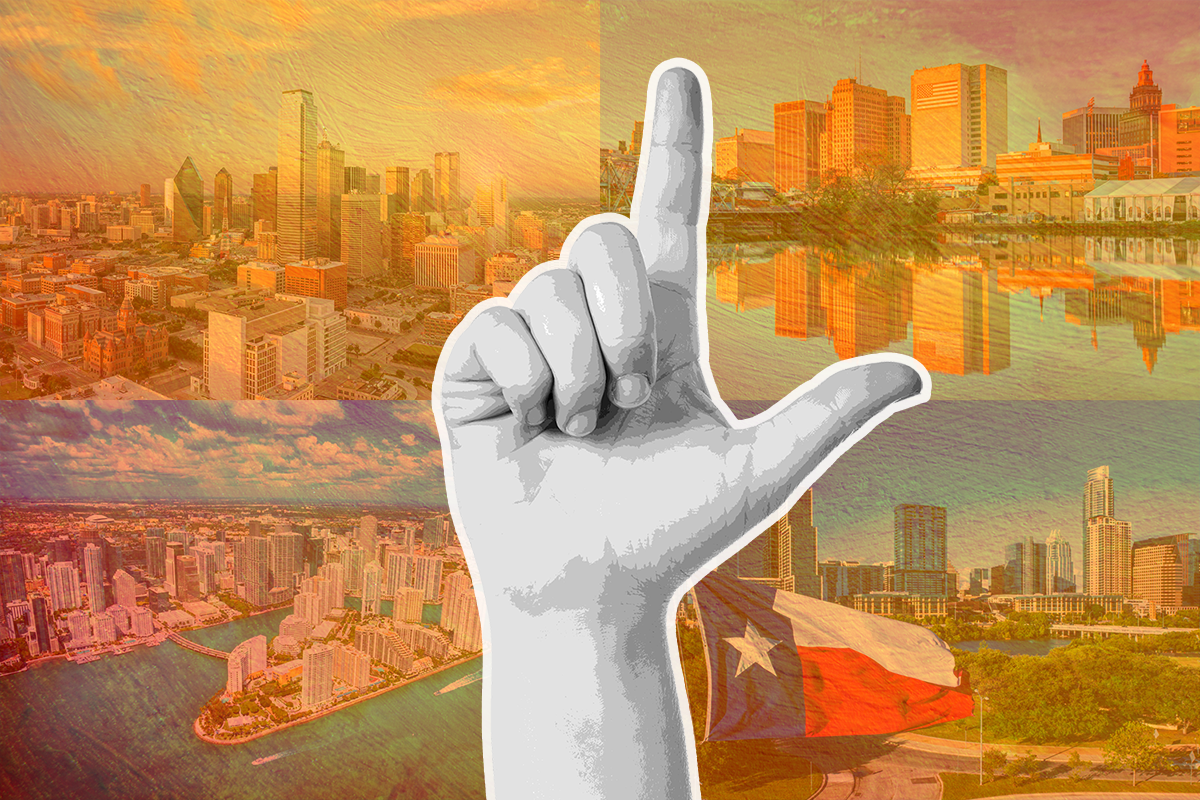
The cities that fought until the last minute to win over Amazon are now moving on — some joyfully, some begrudgingly.
Before the news leaked that New York and Crystal City, Virginia, were Amazon’s top headquarters picks, five other cities also seemed poised to nab the golden ticket. Amazon representatives reportedly revisited Chicago, Miami and Newark in late October. Texas appeared a viable contender with sources in early November telling outlets that the company was in advanced talks with both Dallas and Austin.
Some officials and developers in those cities lament the loss; some are downright puzzled. And others are just grateful they had a chance. Here’s how the HQ2 rejects are coping:
Chicago
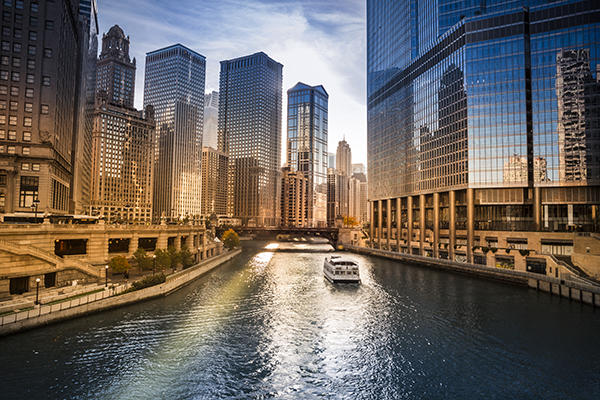
(Credit: iStock)
The Midwest City’s public and private leaders presented Amazon with 10 proposals for its second headquarters — among them Related Midwest’s The 78, Sterling Bay’s 53-acre project Lincoln Yards and Farpoint Development’s 100-acre campus known as Burnham Lakefront.
But now, those near-winners are already predicting Chicago will lure other corporate relocations instead.
Related Midwest CEO Curt Bailey said in a statement on Tuesday that prospective tenants, including “major corporations, cultural institutions and retailers,” have shown interest in its $7 billion megaproject (which received its first city approval Thursday).
The 78 did come close, though. “What I would take from that exercise is that of 238 municipalities, you probably had close to 1,000 sites combined, and we were top five,” Bailey said in a later interview with The Real Deal. “That makes me feel pretty good about our prospects moving forward on The 78 for other companies.”
Sterling Bay — which planned 6 million square feet of commercial space at its Lincoln Yards site — is also putting Amazon in its rearview mirror. In fact, the developer claims it doesn’t expect to have any trouble filling the it planned for the project now that the Seattle-based e-commerce behemoth is out.
Spokeswoman Julie Goudie said in a statement said that “Sterling Bay is moving full steam ahead” with its initial plans.
Chicago Mayor Rahm Emanuel refused to say what Amazon executives told him about why they passed on Chicago, but said losing is part of playing the game.
“If you compete, you have the opportunity to win, and you also have the opportunity to not be successful. That said, Chicago has won more than it has lost.”
Dallas
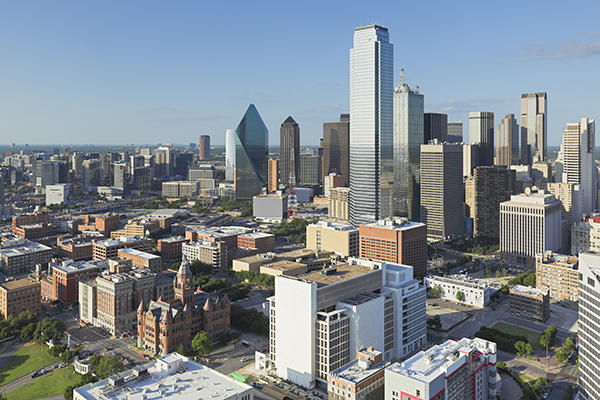
(Credit: iStock)
Following the official announcement that Amazon would split its new headquarters between New York and Virginia, Dallas Mayor Mike Rawlings admitted during a press conference that officials had been willing to let Amazon “change the whole direction of the city.” He also added that the two coastal cities, seemed to be to more “than what I thought Amazon wanted to pay.”
Developers whose sites made it to the final inning did say they hedged their bets.
Jim Reynolds, senior vice president of development and construction at a West Dallas Investments company, said that “there are specific companies that we know are on the sidelines.”
Reynolds’ company presented Amazon with Trinity Groves, an 80-acre assemblage that West Dallas Investments had cobbled together over the past 15 years. There, the company planned a 9 million-square-foot megaproject. But now that the decision is final, Reynolds said his firm is “anxious” to get a move on.
Meanwhile, other local developers like Cienda Partners, which had its 50-acre project Oak Cliff also listed as a potential site for Amazon, weren’t paying much attention to “the Amazon hoopla,” as Cienda’s managing partner Philip Wise put it.
“We hadn’t paid a lot of attention to Amazon quite frankly with so many people in this competition,” he said.
Miami
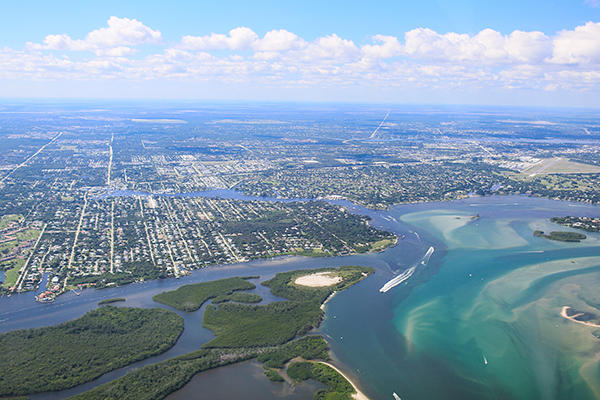
(Credit: iStock)
Amazon had a slew of potential sites to pick from across Miami-Dade, Broward and Palm Beach counties. Perhaps one of the most iconic was the $4 billion, 27-acre megaproject, Miami Worldcenter. The developer was reportedly ready to carve out up to 10 acres of the project for Amazon.
The development’s managing principal Nitin Motwani declined to comment on the status of the project in relation to the Amazon proposal, citing a NDA, but noted that the company has “active conversations going with a variety of people” for the land that was available for Amazon. Though HQ2 “would have been a catalyst,” according to Miami Mayor Francis Suarez, he doesn’t see the loss as a setback. Miami will keep looking for a “big tech tenant.” The mayor says he’ll continue to promote the city to potential contenders like Google and Spotify — the latter of which he said has been in “on-and-off” talks with the city.
“I don’t think it slows down Miami one iota,” he said.
Kelly Smallridge, the president and CEO of the Business Development Board of Palm Beach County, said the year-long process laid the groundwork for similar bids between counties in the future and said “there’s no hard feelings.”
She described the process of the year-long competition — which has been called a “Hunger Games”-style death match — as “standard.”
“Projects a tenth of the size take three years to make the decision … they stuck to the timeframe they put forward,” she said. “They handled it very well and very quickly.”
Smallridge declined to comment on how the loss of HQ2 would impact any of the sites that were listed as part of South Florida’s proposal, though she contested the sentiment that other large corporations could step in and fill up the large developments.
“We would basically have had to create a city for Amazon,” she said. “There aren’t people in the wings to take 5 million square feet … that just doesn’t happen.”
Newark
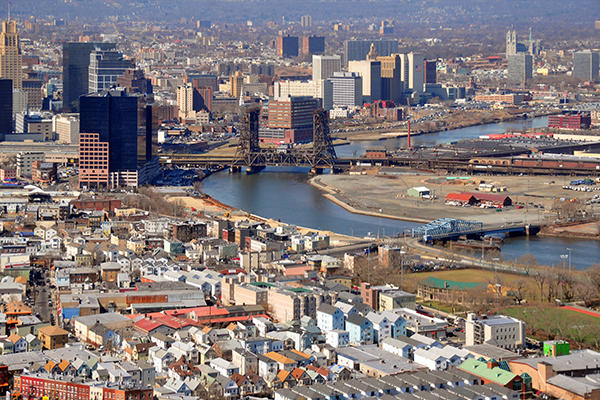
(Credit: iStock)
At worst, Newark’s run for Amazon’s HQ2 was an exercise in self-promotion.
“I feel like we just worked on our largest class project ever,” said Aisha Glover, CEO of Newark Community Economic Development Corporation, who worked alongside Mayor Ras Baraka to put together the city’s bid. “No one expected us to land on the list anyway.”
Though Glover says the city’s pipeline of new development has been growing steadily for at least four years, she said there’s been a “significant uptick in interest” since Newark made Amazon’s 20-city shortlist in January. It was “an immediate change in the winds,” according to her, though developers are less enthusiastic.
“Listen, it was always a very long shot that Newark would win,” said residential developer Ron Beit of RBH Group. The company’s SoMa Master Plan project was listed in Newark’s bid. “I think Amazon made a mistake,” he said, but, in the same breath, he noted developers “were all very sober about it.”
The long-standing relationship with Audible, which was acquired by Amazon in 2008 and is based in the city, made some, like Beit, think “we had a chance,” but “no one was sort of underwriting that in their expectations.”
Commercial developer Ben Korman, chairman and CEO Lotus Equity Group and co-founder of C&K Properties with Meir Cohen, had two of his developments included in Newark’s bid and, hours after Amazon’s announcement, even he admitted that “I don’t think [losing HQ2] means a whole lot.”
That said, Korman said the amount of positive press for the city did go a long way in minting a new reputation that developers like him have been trying to sell for years.
“Newark,” he said, “is definitely a player now.”
Korman described the growth of the city as being “more organic” without HQ2 in the mix, but said his work felt no effect from Amazon’s opting for NYC over the Garden State city.
“To be honest, we tried to help, but we were not invested in any way. There’s not much for me to add. A lot will be said about this process, but I’m not the one to say it,” he said.
Additional reporting by Katherine Kallergis and Keith Larsen.




